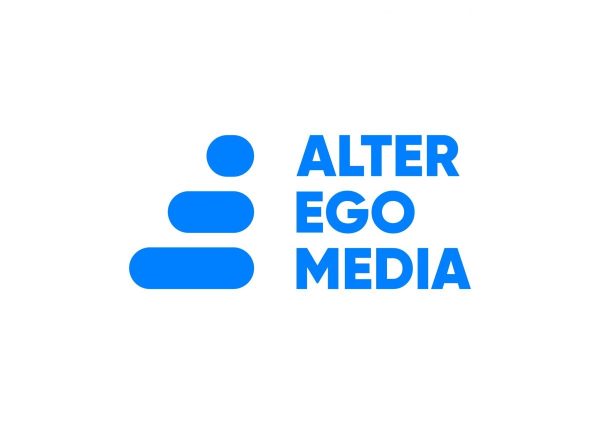
Small and very small businesses in Greece are racing in order to adapt to the new digital environment. At a time when digital sales channels are becoming more important than ever, as reported by SEPE, only 15% of small and very small companies in the country answer that they have an e-shop or participate in an online platform (of the Skroutz.gr type).
Commercial companies are the ones that, for the most part, have an e-sales system. The highest percentage was observed in the trade sector with 26.2% answering positively compared to about 11% respectively in manufacturing and services. In addition, the integration of e-sales systems or participation in an online platform seems to be related to the age of the entrepreneur, the educational level, but also to the age of the company and the amount of the annual turnover.
In particular, 22.8% and 18.2% of entrepreneurs belonging to the age groups 18-34 and 35-49 respectively, have integrated relevant systems in the company, compared to only 10.3% of entrepreneurs who are 50 years old, or more.
In addition, 19.1% and 18.8% of companies aged up to 5 years and 5-10 years respectively have integrated relevant systems, compared to 12.2% and 13% of companies aged 10-15 years and over 15 years respectively. Graduates of primary or secondary education (10.4%) also show a low percentage of integration of such technologies, as well as companies with an annual turnover of up to € 50,000 (11%).
“From the above findings it seems that there is a very large part of small and very small companies, which have not incorporated in their activity even digital systems of low technological intensity”, states the annual “Report of the Small Business Institute of the Hellenic Confederation of Professionals, Craftsmen, and Merchants on” The impact of the pandemic on business”.
Digital tools
When asked if the company has adopted digital marketing tools, website, social media, 50.1% of businesses said they have adopted digital marketing tools in their business. A higher percentage of adoption of digital Marketing tools is observed in commercial enterprises and in manufacturing – craft with 59.7% and 58.6% respectively to answer positively, compared to 46% in the service sector with 46%.
As in the case of e-commerce media, in digital marketing the newer businesses seem to be more active than the older ones. Specifically, 54.9% and 53.9% of the companies created in the last five years and those aged 5-10 respectively, answered positively.
This percentage drops to 45.5% for companies created between 10 and 15 years ago and to 49.1% for companies older than 15 years. Correspondingly, there is a strong positive relationship with the educational level of the entrepreneur, with 44.1% of primary or secondary education graduates answering positively, while the percentage gradually rises to 53% for postgraduate / doctoral graduates.
There is also an almost linear relationship with the size of the company, as while the self-employed and those with up to 1 employee account for about 42% -44% of the positive responses, this percentage increases significantly, as employees increase, reaching 67%. for companies with more than 11 employees.
During times of crisis
Although it is commonplace that the pandemic crisis has accelerated digital transformation processes, only 11% of businesses that have integrated e-sales systems and / or digital marketing processes developed this feature during the pandemic. The vast majority (89%) answered that they had developed it before the pandemic period.
In other words, it seems that the pandemic crisis did not have a significant impact on the digital transformation of small and very small businesses. “Therefore, the strong challenge of adapting to the digital economic environment that is emerging remains for most small and micro-enterprises,” the study noted.
Latest News

New institutionalized misconduct by ND brought to light – Covert propaganda and character assassination mechanism exposed, operated through Blue Skies by Varvitsiotis and Olympios with direct link to Maximos and Mitsotakis»
A damning investigation by Inside Story, an independent Greek investigative outlet, has exposed what appears to be a covert propaganda network operating at the heart of Greece’s ruling party, New Democracy (ND)

Inflation in Greece Eases to 2.4% in March 2025, Says ELSTAT
Rents have surged by more than 10% over the past year, and electricity prices have followed a similar trajectory.

Greece Eyes New Tourist Markets, Says Minister at Delphi Forum
The Greek Tourism Ministry is aiming to tap into new markets such as India, the UAE, China, as well as increase its share in the US West Coast

Delphi Economic Forum X 2025 – FT Journalist Alec Russell Talks Ukraine, Populism and Trump
Alec Russell, journalist and head of foreign correspondents at the Financial Times, described Trump as a “master of unpredictability.”

Von der Leyen Welcomes Trump’s Tariff Pause
European Commission President Ursula von der Leyen on Thursday welcomed U.S. President Donald Trump’s unexpected decision to pause sweeping tariffs for most countries, calling it “an important step towards stabilizing the global economy.”

Shipping’s Evolving Regulatory Landscape
Regulatory tools must remain unbiased to stay agnostic in terms of energy, enabling continued innovation and investment in the most efficient solutions for the maritime sector.

Alter Ego Media Group: 2024 was a year of impressive financial growth
The financial results for the year ended on 31.12.2024 of Alter Ego Media, the country's major media group, demonstrate strong growth across all financial indicators.

EU Retaliates, Approves Tariffs in Trump Trade Clash
The European Union has approved its first round of retaliatory tariffs in response to U.S. President Donald Trump’s sweeping trade duties.

10th Delphi Economic Forum – ‘We are in a 2nd Cold War’: Professor Platias
“We are in a new Cold War,” the professor pointed out, claiming the two poles were the United States and China.

Deputy of Tempi Train Crash Committee Resigns
Christos Papadimitriou, the deputy chairman of the Hellenic Rail Accident Investigation Agency (EOADASAM), forwarded his letter of resignation to the deputy minister of transport on Wednesday.









































 Αριθμός Πιστοποίησης
Αριθμός Πιστοποίησης